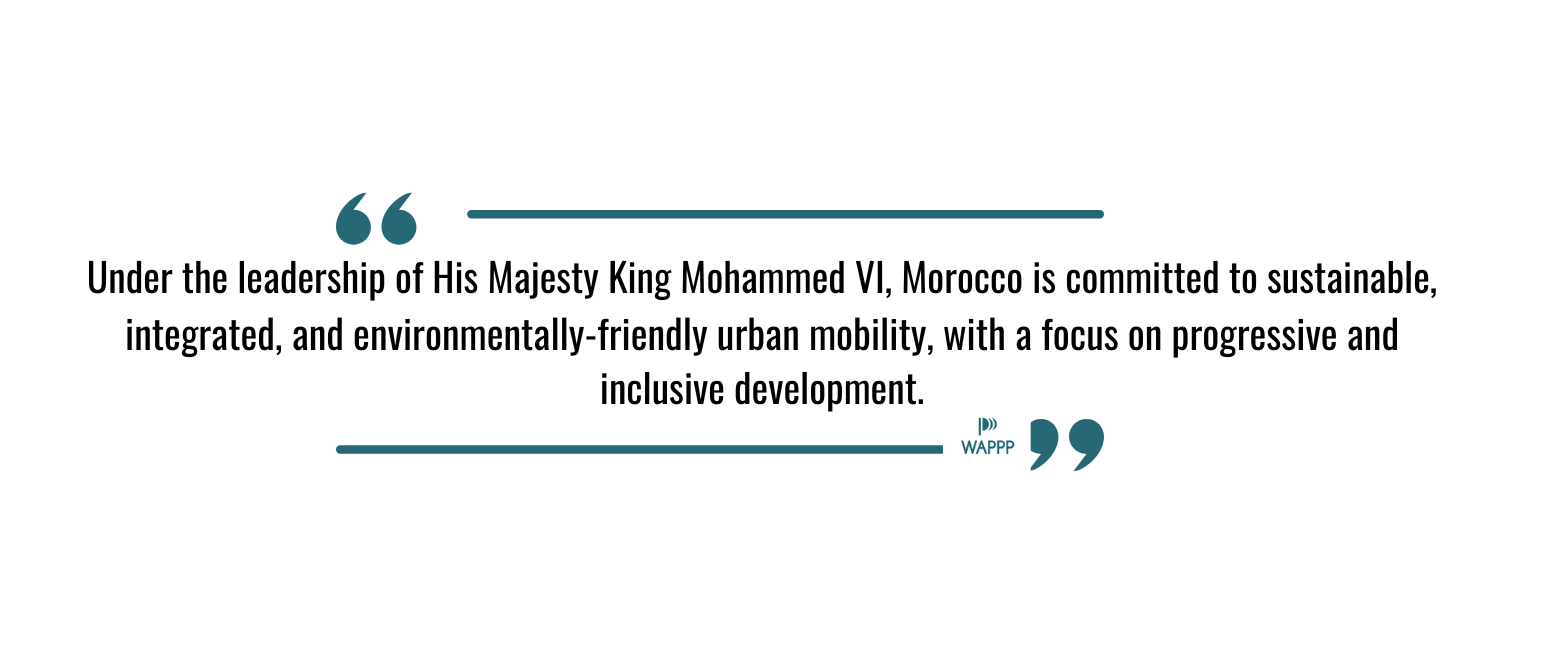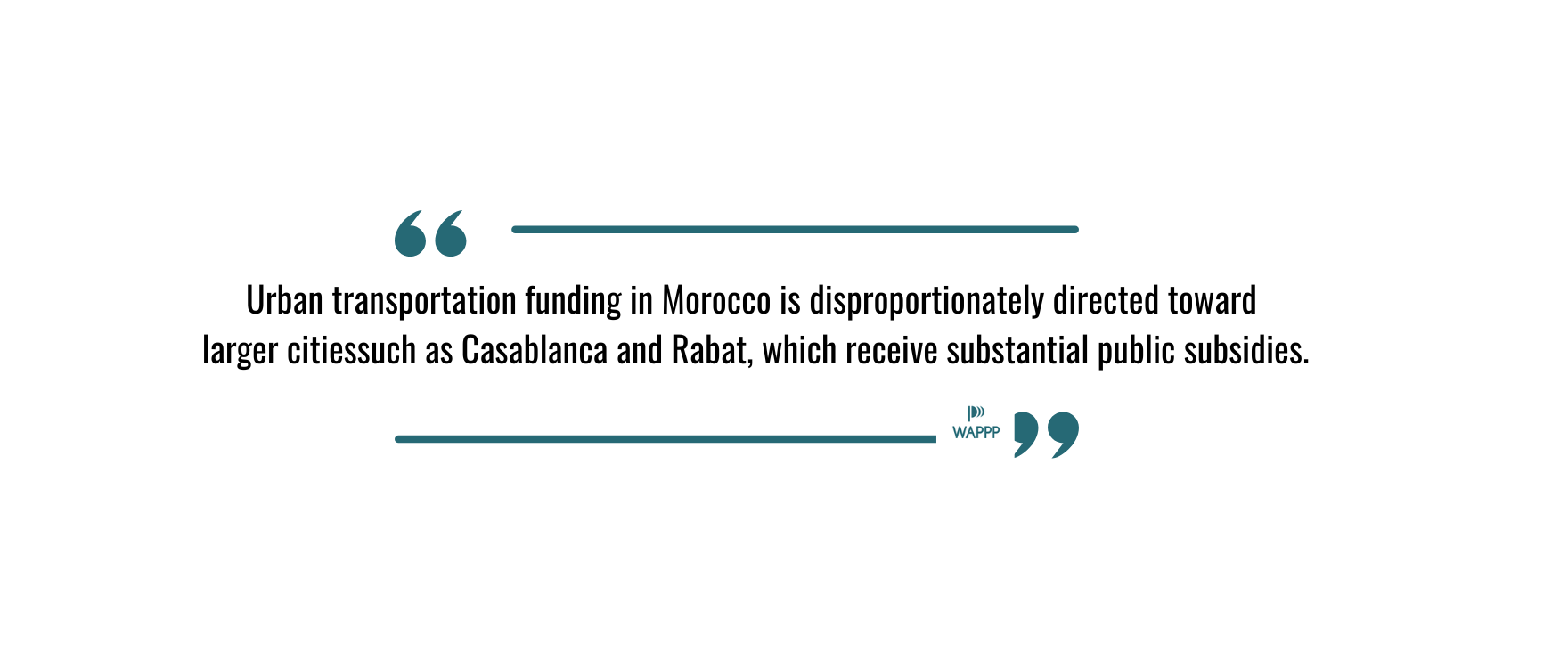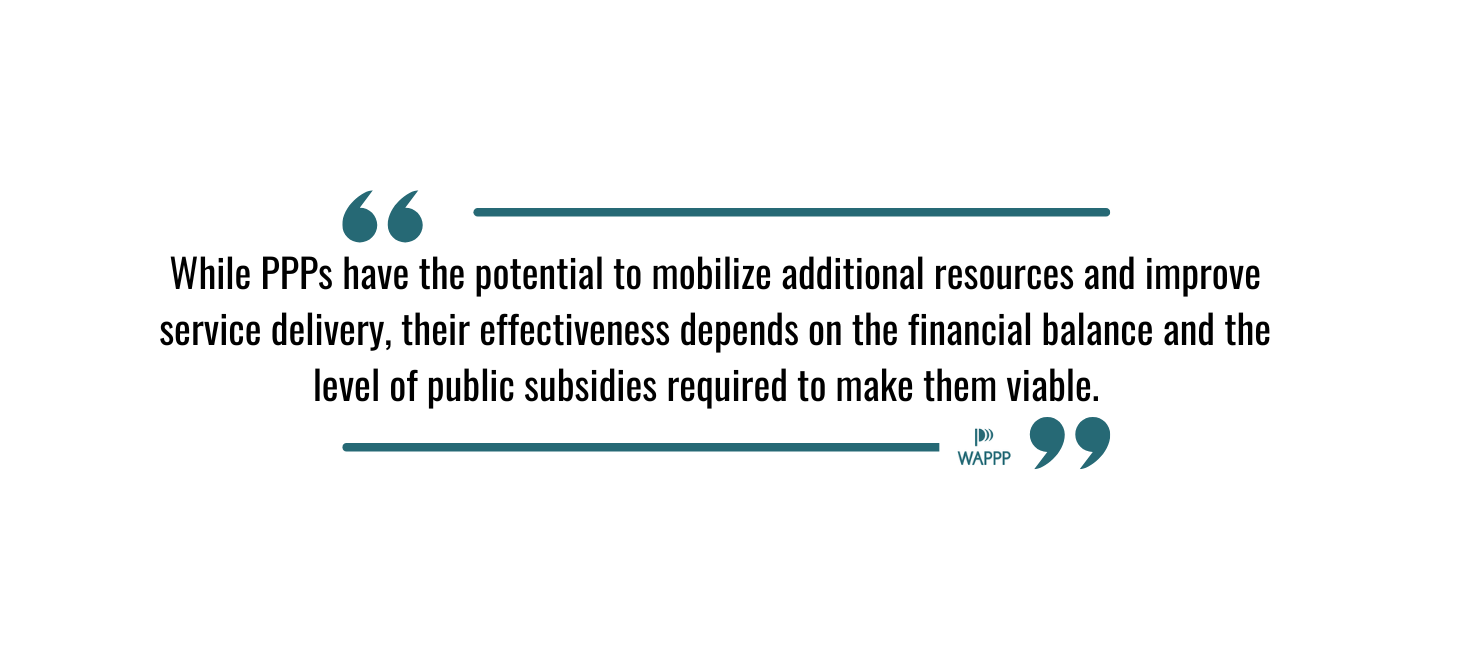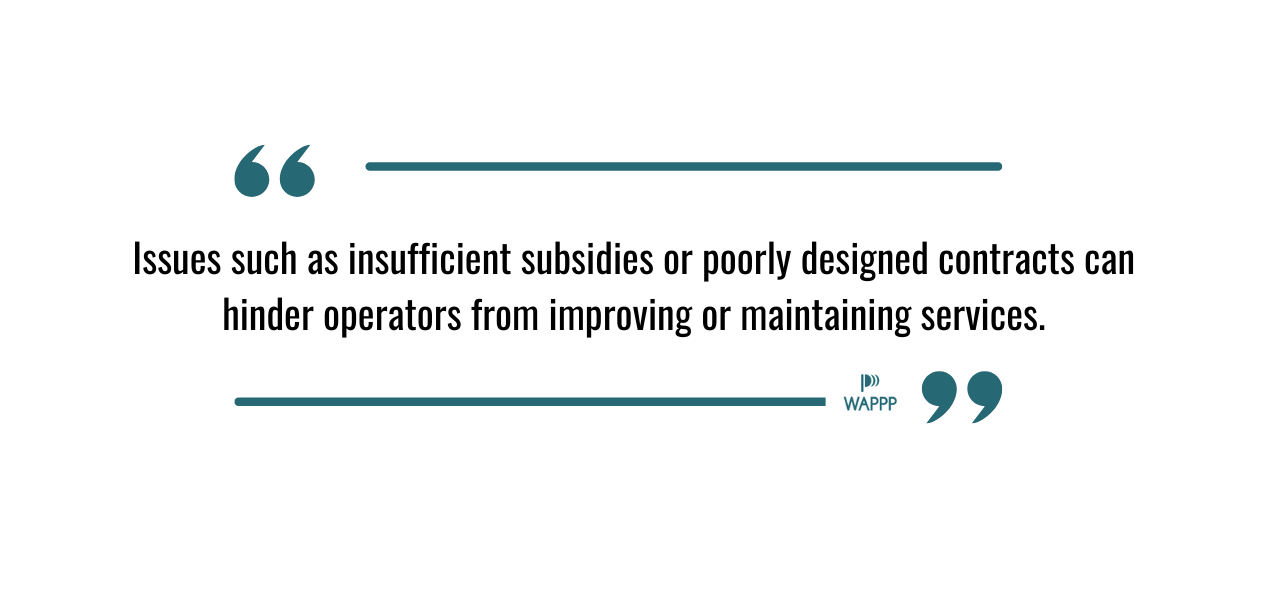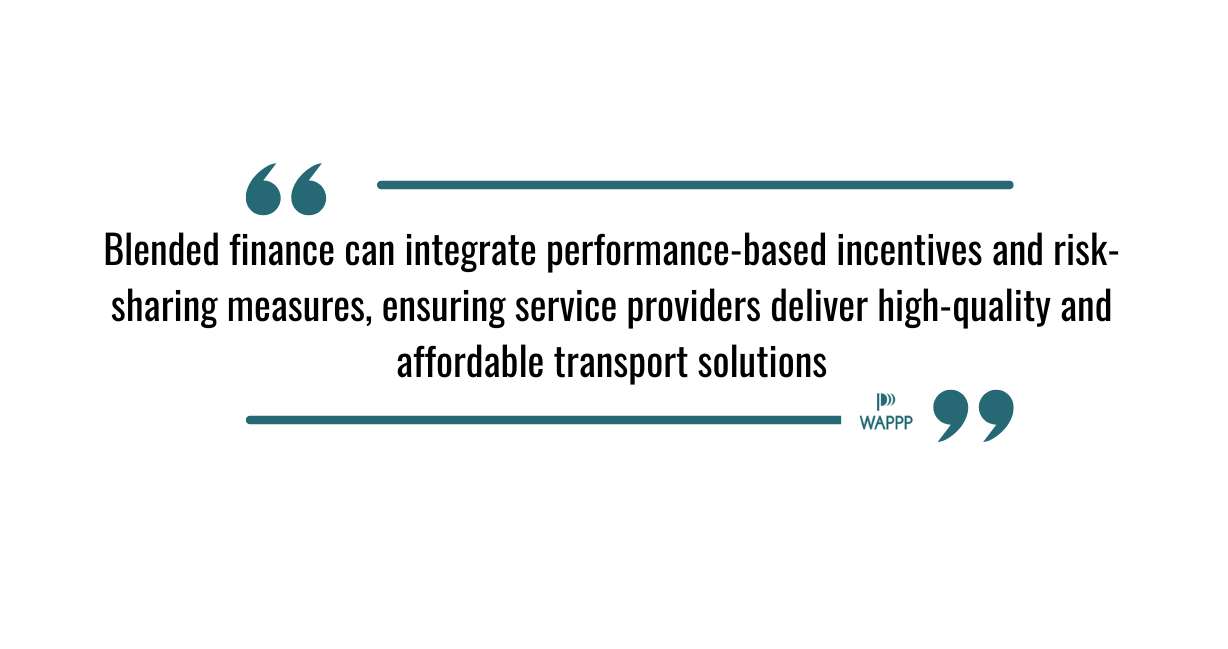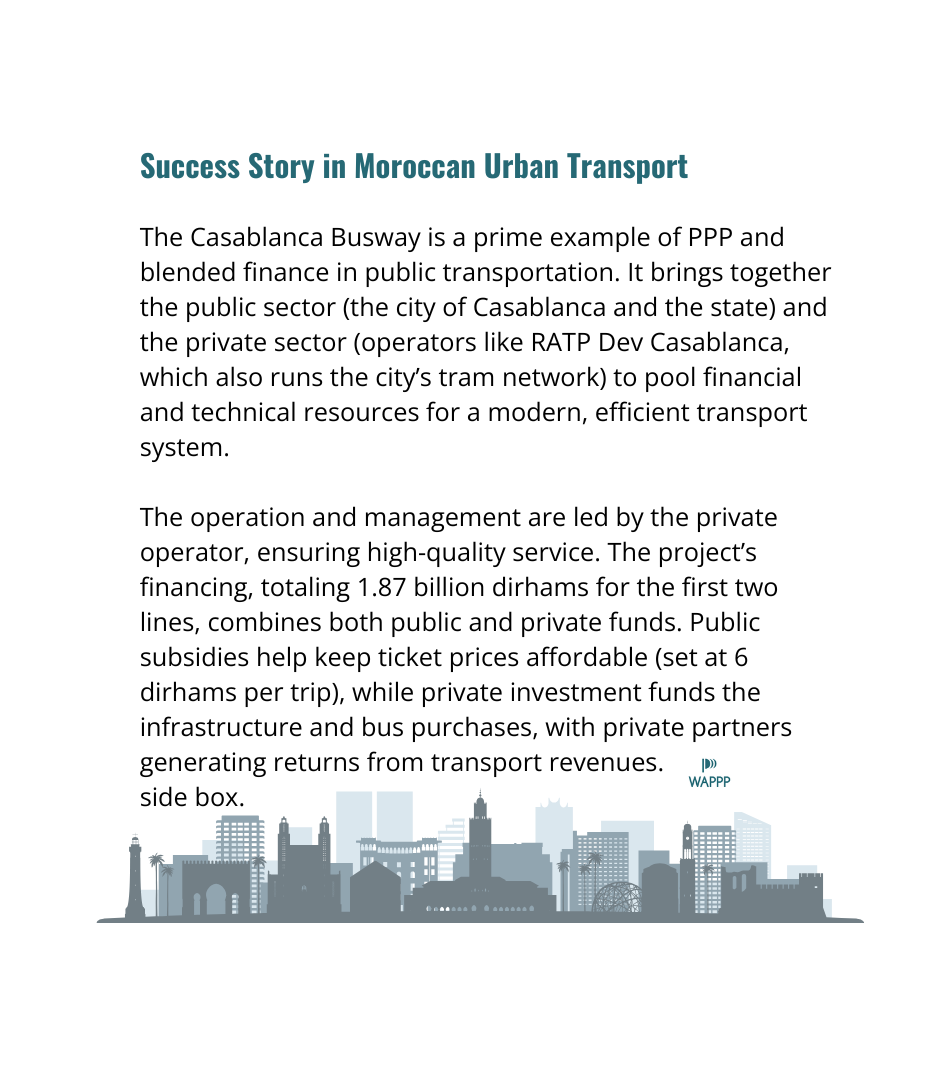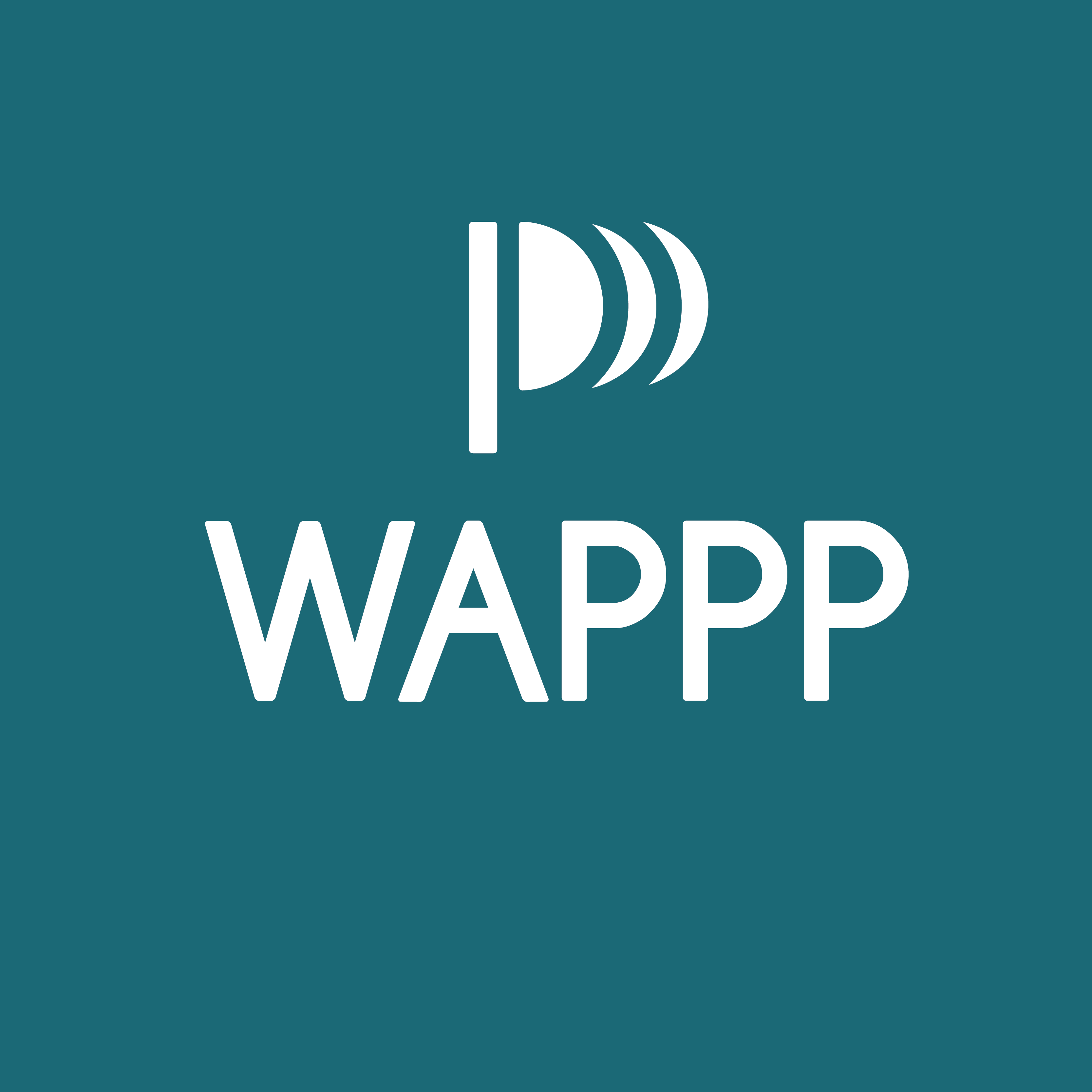Introduction
The urban transport sector in Morocco faces significant challenges such as congestion, pollution, and unequal access to transportation services. Even when cities like Casablanca and Rabat have introduced modern trams and buses, these issues persist. Under the leadership of His Majesty King Mohammed VI, Morocco is committed to sustainable, integrated, and environmentally-friendly urban mobility, with a focus on progressive and inclusive development. The National Urban Mobility Strategy for 2040 focuses on urbanization, congestion, pollution reduction and sustainable transport, including electric vehicles, while emphasizing local capacity building for autonomous transport system management.
The state and local authorities finance urban transport through subsidies, PPPs, and innovative mechanisms, but disparities between cities exist. To address this, the Minister of the Interior announced a 10-billion-dirham plan (2024–2027) to acquire 3,500 buses. This initiative seeks to enhance urban transport services and rectify the imbalances in current Gestion Deleguee (delegated management), which are constrained by financial challenges.
Blended finance, which combines public, philanthropic, and private funds, is an innovative structuring mechanism that can help address these challenges. It is particularly valuable for local businesses, especially in the urban transport sector where affordable financing is often a barrier. By integrating blended finance, Morocco can strengthen local businesses and support the transition to sustainable mobility.
Challenges of Urban Mobility in Morocco
Urban mobility in Morocco faces several critical challenges that hinder the development of efficient, sustainable and equitable transportation systems. These challenges span financial, infrastructure and environmental concerns, affecting both the quality of services provided and the overall accessibility of transportation for citizens. Below are some of the major challenges:
Disparity in the Distribution of Subsidies
Urban transportation funding in Morocco is disproportionately directed toward larger cities such as Casablanca and Rabat, which receive substantial public subsidies. Casablanca, which has received 1.4 billion MAD in public investment subsidies and 1.6 billion MAD in operating subsidies since 2019, is an outlier compared to cities like Marrakech and Fès, which have received little to no subsidies in comparison. This imbalance results in unequal access to quality public transport, creating mobility issues for residents in underfunded cities.
The limited financial resources in these areas worsen congestion, pollution and accessibility challenges. To address this, the Moroccan government has announced a plan to allocate 10 billion dirhams for acquiring over 3,500 buses between 2024 and 2027, aiming to balance funding distribution and enhance transportation in underserved cities.
Public-Private Partnerships (PPPs) Need Public Sector Support
With public budgets under pressure, the Moroccan government has increasingly turned to Public-Private Partnerships (PPPs) to finance urban mobility projects. PPPs allow private investors to contribute resources while sharing risks with the public sector. For example, Casablanca has involved private operators in managing its public transport system. While PPPs have the potential to mobilize additional resources and improve service delivery, their effectiveness depends on the financial balance and the level of public subsidies required to make them viable. Without adequate financial support from the public sector, these partnerships may struggle to achieve their intended outcomes.
Poorly Structured Gestion Deleguee
The contractual agreements governing urban transport, especially those involving Gestion Deleguee, are often complex and can lead to financial imbalances. These issues often stem from the involvement of multiple stakeholders, unclear contract terms, poorly designed agreements and inflexible clauses.
These contracts may not always be structured to meet the operational needs of service providers, resulting in subpar service delivery. Issues such as insufficient subsidies or poorly designed contracts can hinder operators from improving or maintaining services. This is particularly evident when public subsidies are not distributed equitably, affecting the overall quality of the transport system across the country.
Transition Financing for e-Mobility Remains Sparse
The transition to environmentally friendly and sustainable mobility is another major challenge for Morocco’s urban transport sector. There is growing momentum to adopt electric vehicles, cleaner public transport, and other eco-friendly transportation options. However, transition financing the necessary infrastructure, such as electric vehicle charging stations and the renewal of aging bus fleets, presents substantial challenges. In parallel, comprehensive policies with dedicated financing mechanisms are needed to support this transition and ensure that urban transport systems can meet future environmental standards.
The Role of Blended Finance: A Game Changer for Urban Mobility in Morocco
Blended finance presents a transformative solution for Morocco’s urban transport challenges by mobilizing both public and private sector resources to drive investment and innovation. By mitigating financial risks and attracting private capital, this approach can help develop sustainable, inclusive, and efficient transportation systems nationwide.
Equitable Subsidy Distribution
Blended finance can help balance the allocation of urban transport subsidies by leveraging concessional capital from development institutions to attract private investment in underfunded cities. By reducing financial risks, private investors are more likely to engage in projects that enhance mobility in smaller cities.
Enhancing PPPs for Urban Transport
PPPs play a critical role in urban mobility but often require financial support to be viable. Blended finance can improve PPP effectiveness by introducing risk-sharing mechanisms that attract private participation while ensuring project sustainability.
Improving Gestion Deleguee
Complex financial structures in Gestion Deleguee often create inefficiencies. Blended finance can integrate performance-based incentives and risk-sharing measures, ensuring service providers deliver high-quality and affordable transport solutions.
Accelerating Transition Financing to Green Mobility
The high costs of sustainable transport—such as electric buses and charging infrastructure—often deter investment. By blending concessional funding with private capital, Morocco can de-risk green mobility projects and accelerate the shift to environmentally friendly transport solutions.
Towards Sustainable and Inclusive Urban Mobility
To become a regional leader in sustainable transport, Morocco must promote collaboration between local businesses, authorities and financial institutions. Integrating blended finance into transport infrastructure strategies presents a significant opportunity to :
● Increase the autonomy and competitiveness of local businesses.
● Stimulate innovation and technology adoption in transport systems.
● Ensure a more equitable distribution of investments across cities.
Conclusion
Blended finance in PPPs is essential for accelerating Morocco’s transition to sustainable urban mobility. It provides local businesses with access to financing, strengthens their capacity to manage large-scale projects and contributes to sustainable urban transport development.
By leveraging locally-operated PPPs, Morocco can reduce reliance on foreign operators, develop a resilient transport system and create economic opportunities for local businesses. The country’s commitment to inclusive, environmentally friendly mobility paves the way for a future where innovation, sustainability, and competitiveness benefit all citizens.
About the Author
Fatima Zohra Rahmoun
Head of PPP Structuring, Ministry of Economy and Finance, Morocco, expert in PPP frameworks with experience at EPEC/EIB.
Leads workshops and learning sessions to equip public entities and international PPP units with the knowledge and tools to structure effective projects.
Co-founder & Executive Member of WAPPP, holding degrees in Engineering and an MBA from AUI.
Workshop on Unlocking Investments Through PPP – March 25
Image courtesy: IFC
